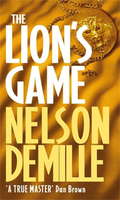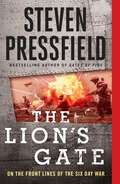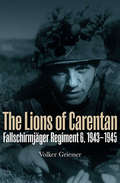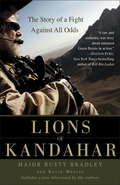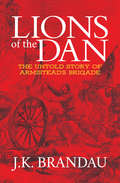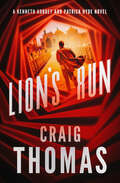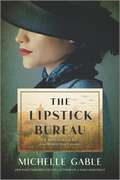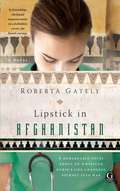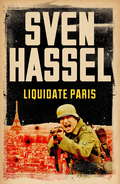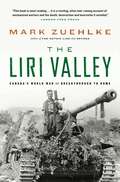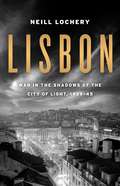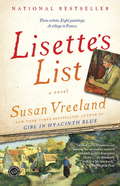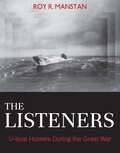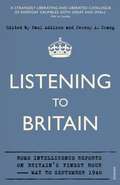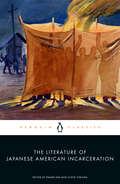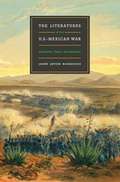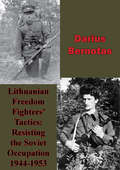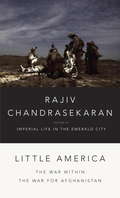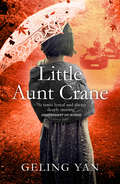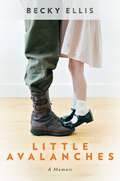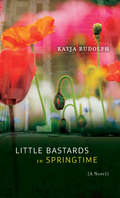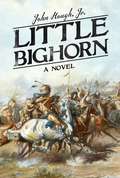- Table View
- List View
The Lion's Game: Number 2 in series (John Corey #2)
by Nelson DeMilleApril 1986 : American F-111 warplanes bomb the Al Azziyah compound in Libya where President Gadhafi is residing. A 16-year-old youth, Asad - Arabic for 'lion ' - loses his mother, two brothers and two sisters in the raid. Asad sees himself as chosen to avenge not only his family but his nation, his religion and the Great Leader - Gadhafi. An eye for an eye, a tooth for a tooth.Twelve years later, Asad arrives in New York City, intent on killing all five surviving pilots across America who participated in the bombing, one by one. John Corey - from the international bestseller PLUM ISLAND - is no longer with the NYPD and is working for the Anti-Terrorist Task Force. He has to stop Asad's revenge killings. But first he has to find him.A thrillingly entertaining read from a master storyteller.
The Lion's Gate: On the Front Lines of the Six Day War
by Steven Pressfield“A brilliant look into the psyche of combat. Where he once took us into the Spartan line of battle at Thermopylae, Steven Pressfield now takes us into the sands of the Sinai, the alleys of Old Jerusalem, and into the hearts and souls of soldiers winning a spectacularly improbable victory against daunting odds.”—General Stanley McChrystal, U.S. Army, ret.; author of My Share of the TaskJune 5, 1967. The nineteen-year-old state of Israel is surrounded by enemies who want nothing less than her utter extinction. The Soviet-equipped Egyptian Army has massed a thousand tanks on the nation’s southern border. Syrian heavy guns are shelling her from the north. To the east, Jordan and Iraq are moving mechanized brigades and fighter squadrons into position to attack. Egypt’s President Nasser has declared that the Arab force’s objective is “the destruction of Israel.” The rest of the world turns a blind eye to the new nation’s desperate peril.June 10, 1967. The Arab armies have been routed, ground divisions wiped out, air forces totally destroyed. Israel’s citizen-soldiers have seized the Gaza Strip and the Sinai Peninsula from Egypt, the Golan Heights from Syria, East Jerusalem and the West Bank from Jordan. The land under Israeli control has tripled. Her charismatic defense minister, Moshe Dayan, has entered the Lion’s Gate of the Old City of Jerusalem to stand with the paratroopers who have liberated Judaism’s holiest site—the Western Wall, part of the ruins of Solomon’s temple, which has not been in Jewish hands for nineteen hundred years.It is one of the most unlikely and astonishing military victories in history.Drawing on hundreds of hours of interviews with veterans of the war—fighter and helicopter pilots, tank commanders and Recon soldiers, paratroopers, as well as women soldiers, wives, and others—bestselling author Steven Pressfield tells the story of the Six Day War as you’ve never experienced it before: in the voices of the young men and women who battled not only for their lives but for the survival of a Jewish state, and for the dreams of their ancestors.By turns inspiring, thrilling, and heartbreaking, The Lion’s Gate is both a true tale of military courage under fire and a journey into the heart of what it means to fight for one’s people.
The Lions of Carentan: Fallschirmjager Regiment 6, 1943–1945
by Volker Griesser&“Fascinating . . . a must read for those who are interested in the Normandy, Market Garden, and Ardennes Operations&” (Henrik Lunde, author of Hitler&’s Preemptive War). This is the complete wartime history of one of the largest German paratrooper regiments, the 6th, from its initial formation in the spring of 1943 to its last day at the end of the war. With numerous firsthand accounts from key members reporting on their experiences, they describe the events of 1943–45 vividly and without compromise. These accounts reveal previously unknown details about important operations in Italy, Russia, Belgium, and Holland, and on the Normandy Front, the last German Parachute drop in the Ardennes, and the final battle to the end in Germany. With over 220 original photographs, many from private collections and never before published, this book fully illustrates the men, their uniforms, equipment, and weapons. Also included is an appendix with maps, battle calendar, staffing plans, a list of field numbers, and the Knight&’s Cross recipients of the regiment. Having earned the respect of the Allied forces who fought against it during World War II, this work will inform current readers of the full record of Fallschirmjäger Regiment 6, and why the Allied advance into German-held Europe was so painstaking to achieve. &“The great value of Griesser&’s superb, richly detailed, and fabulously illustrated work is that it fills in a very wide gap in our knowledge about one of Nazi Germany&’s elite branches of service . . . The Lions of Carentan represents a treasure trove for anyone interested in German airborne forces.&” —Flint Whitlock, author of If Chaos Reigns
Lions of Kandahar: The Story of a Fight Against All Odds
by Rusty Bradley Kevin MaurerOne of the most critical battles of the Afghan War is now revealed as never before. Lions of Kandahar is an inside account from the unique perspective of an active-duty U.S. Army Special Forces commander, an unparalled warrior with multiple deployments to the theater who has only recently returned from combat there.Southern Afghanistan was slipping away. That was clear to then-Captain Rusty Bradley as he began his third tour of duty there in 2006. The Taliban and their allies were infiltrating everywhere, poised to reclaim Kandahar Province, their strategically vital onetime capital. To stop them, the NATO coalition launched Operation Medusa, the largest offensive in its history. The battlefield was the Panjwayi Valley, a densely packed warren of walled compounds that doubled neatly as enemy bunkers, lush orchards, and towering marijuana stands, all laced with treacherous irrigation ditches. A mass exodus of civilians heralded the carnage to come.Dispatched as a diversionary force in support of the main coalition attack, Bradley's Special Forces A-team and two others, along with their longtime Afghan Army allies, watched from across the valley as the NATO force was quickly engulfed in a vicious counterattack. Key to relieving it and calling in effective air strikes was possession of a modest patch of high ground called Sperwan Ghar. Bradley's small detachment assaulted the hill and, in the midst of a savage and unforgettable firefight, soon learned they were facing nearly a thousand seasoned fighters--from whom they seized an impossible victory.Now Bradley recounts the whole remarkable story as it actually happened. The blistering trek across Afghanistan's infamous Red Desert. The eerie traces of the elusive Taliban. The close relations with the Afghan people and army, a primary mission focus. Sperwan Ghar itself: unremitting waves of fire from machine guns and rocket-propelled grenades; a targeted truck turned into an inferno; the death trap of a cut-off compound. Most important: the men, Americans and Afghans alike--the "shaky" medic with nerves of steel and a surgeon's hands in battle; the tireless sergeant who seems to be everywhere at once; the soft-spoken intelligence officer with laser-sharp insight; the diminutive Afghan commander with a Goliath-sized heart; the cool maverick who risks all to rescue a grievously wounded comrade--each unique, all indelible in their everyday exercise of extraordinary heroism.From the Hardcover edition.
Lions of the Dan: The Untold Story of Armistead's Brigade
by J.K. BrandauLions of the Dan: The Untold Story of Armisteads Brigade chronicles those men of Picketts Charge over the full course of the Civil War.While time-honored celebrations of Armistead and Pickett focus narrowly on moments at Gettysburg, primary sources declare the untold story of the best of men in the worst of times and refutes Lost Cause myths surrounding Armistead and Pickett. Written by retired scientist J.K. Brandau, for the first time, Lions of the Dan widens the aperture to introduce real heroes and amazing deeds that have been suppressed until now. Brandau presents the experiences of real soldiers in their own words and highlights the much-ignored history of Southside Virginia, presenting the Civil War start to finish from a unique, regional perspective. Readers find their pedestrian notions of the founding of the Souths peculiar institution challenged as they read an objective account of Virginias secession and celebrate the courage and devotion of soldiers on both sides.,
Lion's Run (The Kenneth Aubrey & Patrick Hyde Series)
by Craig ThomasNew York Times–Bestselling Author: A British spy goes into action when his boss is framed for treason in this &“bracing thriller . . . the suspense is galvanizing&” (The Wall Street Journal). After baiting Kenneth Aubrey with a potential defector, the KGB gets their hooks in by framing Aubrey himself as a traitor—and a killer. Now the head of British intelligence is enduring house arrest and interrogation, and things look bleak. His field agent, Patrick Hyde, is convinced someone within their own ranks must have conspired with the KGB to destroy the long-serving spymaster—and his quest to uncover the double agent will take him from Afghanistan to Czechoslovakia and into a top-secret computer system . . . &“A cloak-and-dagger grand tour . . . When it comes to keeping the story moving and stoking up the excitement, Mr. Thomas knows his business.&” —The New York Times
The Lipstick Bureau: A Novel Inspired by a Real-Life Female Spy
by Michelle GableInspired by a real-life female spy, a novel about a woman challenging convention and boundaries to help win a war, no matter the cost.&“A gripping, fascinating read.&” —Kelly Rimmer, New York Times bestselling author of The Warsaw Orphan1944, Rome. Newlywed Niki Novotná is recruited by a new American spy agency to establish a secret branch in Italy's capital. One of the OSS's few female operatives abroad and multilingual, she's tasked with crafting fake stories and distributing propaganda to lower the morale of enemy soldiers.Despite limited resources, Niki and a scrappy team of artists, forgers and others—now nicknamed The Lipstick Bureau—find success, forming a bond amid the cobblestoned streets and storied villas of the newly liberated city. But her work is also a way to escape devastating truths about the family she left behind in Czechoslovakia and a future with her controlling American husband.As the war drags on and the pressure intensifies, Niki begins to question the rules she's been instructed to follow, and a colleague unexpectedly captures her heart. But one step out of line, one mistake, could mean life or death…*Don't miss The Beautiful People, Michelle Gable&’s next novel. On sale in April 2024 and available to preorder now!
Lipstick in Afghanistan
by Roberta GatelyRoberta Gately's lyrical and authentic debut novel--inspired by her own experiences as a nurse in third world war zones--is one woman's moving story of offering help and finding hope in the last place she expected. Gripped by haunting magazine images of starving refugees, Elsa has dreamed of becoming a nurse since she was a teenager. Of leaving her humble working-class Boston neighborhood to help people whose lives are far more difficult than her own. No one in her family has ever escaped poverty, but Elsa has a secret weapon: a tube of lipstick she found in her older sister's bureau. Wearing it never fails to raise her spirits and cement her determination. With lipstick on, she can do anything--even travel alone to war-torn Afghanistan in the wake of 9/11. But violent nights as an ER nurse in South Boston could not prepare Elsa for the devastation she witnesses at the small medical clinic she runs in Bamiyan. As she struggles to prove herself to the Afghan doctors and local villagers, she begins a forbidden romance with her only confidant, a charming Special Forces soldier. Then, a tube of lipstick she finds in the aftermath of a tragic bus bombing leads her to another life-changing friendship. In her neighbor Parween, Elsa finds a kindred spirit, fiery and generous. Together, the two women risk their lives to save friends and family from the worst excesses of the Taliban. But when the war waging around them threatens their own survival, Elsa discovers her only hope is to unveil the warrior within. Roberta Gately's raw, intimate novel is an unforgettable tribute to the power of friendship and a poignant reminder of the tragic cost of war.
Liquidate Paris (Cassell Military Paperbacks Ser.)
by Sven HasselLIQUIDATE PARIS shows the eruption of the Second World War in its most brutal and cruel phase, as allied troops advance upon Paris and the penal regiment retreat.I had a grenade in my hand. So, no doubt, did the English private. I tore out the pin with my teeth. Lay there and counted. Twenty-one, twenty-two, twenty-three, twenty-four...It is Hitler's last chance to save the Third Reich...Millions of Allied troops have landed in Normandy.The orders are clear: Sven and his comrades, hardened by a savage war that has led them from the bloody steppes of the Russian Front, to the slopes of Monte Cassino, are ordered to withdraw to Strasbourg and destroy Paris on the way...
Liquidate Paris (Sven Hassel War Classics)
by Sven HasselLIQUIDATE PARIS shows the eruption of the Second World War in its most brutal and cruel phase, as allied troops advance upon Paris and the penal regiment retreat.I had a grenade in my hand. So, no doubt, did the English private. I tore out the pin with my teeth. Lay there and counted. Twenty-one, twenty-two, twenty-three, twenty-four...It is Hitler's last chance to save the Third Reich...Millions of Allied troops have landed in Normandy.The orders are clear: Sven and his comrades, hardened by a savage war that has led them from the bloody steppes of the Russian Front, to the slopes of Monte Cassino, are ordered to withdraw to Strasbourg and destroy Paris on the way...
The Liri Valley
by Mark ZuehlkeThe second instalment in military historian Mark Zuehlke's compelling World War II tales of Canadians overcoming insurmountable odds in Italy.For the allied armies fighting their way up the Italian boot in early 1944, Rome was the prize that could only be won through one of the greatest offensives of the war. Following upon his book about the battle of Ortona, Mark Zuehlke returns to the Mediterranean theatre of World War II with this gripping tribute to the valiant Canadians who opened the way for the Allies to take Rome.The Liri Valley is testament to the bravery of these Canadians, like the badly wounded Captain Pierre Potvin, who survived more than thirty hours alone in the hell of no man's land. This book, like the battle it records, will live long in readers' memories.
Lisbon: War in the Shadows of the City of Light, 1939-45
by Neill LocheryLisbon had a pivotal role in the history of World War II, though not a gun was fired there. The only European city in which both the Allies and the Axis power operated openly, it was temporary home to much of EuropeOCOs exiled royalty, over one million refugees seeking passage to the U. S. , and a host of spies, secret police, captains of industry, bankers, prominent Jews, writers and artists, escaped POWs, and black marketeers. An operations officer writing in 1944 described the daily scene at LisbonOCOs airport as being like the movie ?Casablanca, OCO times twenty. In this riveting narrative, renowned historian Neill Lochery draws on his relationships with high-level Portuguese contacts, access to records recently uncovered from Portuguese secret police and banking archives, and other unpublished documents to offer a revelatory portrait of the WarOCOs back stage. And he tells the story of how Portugal, a relatively poor European country trying frantically to remain neutral amidst extraordinary pressures, survived the war not only physically intact but significantly wealthier. The countryOCOs emergence as a prosperous European Union nation would be financed in part, it turns out, by a cache of Nazi gold.
Lisette's List: A Novel
by Susan VreelandFrom Susan Vreeland, bestselling author of such acclaimed novels as Girl in Hyacinth Blue, Luncheon of the Boating Party, and Clara and Mr. Tiffany, comes a richly imagined story of a woman's awakening in the south of Vichy France--to the power of art, to the beauty of provincial life, and to love in the midst of war. In 1937, young Lisette Roux and her husband, André, move from Paris to a village in Provence to care for André's grandfather Pascal. Lisette regrets having to give up her dream of becoming a gallery apprentice and longs for the comforts and sophistication of Paris. But as she soon discovers, the hilltop town is rich with unexpected pleasures. Pascal once worked in the nearby ochre mines and later became a pigment salesman and frame maker; while selling his pigments in Paris, he befriended Pissarro and Cézanne, some of whose paintings he received in trade for his frames. Pascal begins to tutor Lisette in both art and life, allowing her to see his small collection of paintings and the Provençal landscape itself in a new light. Inspired by Pascal's advice to "Do the important things first," Lisette begins a list of vows to herself (#4. Learn what makes a painting great). When war breaks out, André goes off to the front, but not before hiding Pascal's paintings to keep them from the Nazis' reach. With German forces spreading across Europe, the sudden fall of Paris, and the rise of Vichy France, Lisette sets out to locate the paintings (#11. Find the paintings in my lifetime). Her search takes her through the stunning French countryside, where she befriends Marc and Bella Chagall, who are in hiding before their flight to America, and acquaints her with the land, her neighbors, and even herself in ways she never dreamed possible. Through joy and tragedy, occupation and liberation, small acts of kindness and great acts of courage, Lisette learns to forgive the past, to live robustly, and to love again.
Listen to the Moon
by Michael MorpurgoAlfie and his father find a lost girl in an abandoned house on a small island. The girl doesn't speak, except to say what sounds like "Lucy." Alfie's mother nurses her back to health. <P><P>The others in the village suspect the unthinkable: Lucy is actually German--an enemy--because she's found with a blanket with a German tag. <P><P>Told from Alfie and Merry's points of view, this exquisite novel tells of friends, enemies, and unexpected kindnesses.
The Listeners: U-boat Hunters During the Great War (Garnet Bks.)
by Roy R. ManstanRoy R. Manstan’s new book documents the rise of German submarines in World War I and the Allies’ successful response of tracking them with innovative listening devices—precursors to modern sonar. The Listeners: U-boat Hunters During the Great War details the struggle to find a solution to the unanticipated efficiency of the German U-boat as an undersea predator. Success or failure was in the hands and minds of the scientists and naval personnel at the Naval Experimental Station in New London, Connecticut. Through the use of archival materials, personal papers, and memoirs The Listeners takes readers into the world of the civilian scientists and engineers and naval personnel who were directly involved with the development and use of submarine detection technology during the war.
Listening to Britain: Home Intelligence Reports on Britain's Finest Hour, May-September 1940
by Jeremy A Crang Paul AddisonFrom May to September 1940, a period that saw some of the most dramatic events in British history - including the evacuation of Dunkirk, the Battle of Britain and the opening stages of the Blitz - the Ministry of Information eavesdropped on the conversations of ordinary people in all parts of the United Kingdom and compiled secret daily reports on the state of popular morale.
The Literature of Japanese American Incarceration
by Frank Abe Floyd CheungThe collective voice of Japanese Americans defined by a specific moment in time: the four years of World War II during which the US government expelled resident aliens and its own citizens from their homes and imprisoned 125,000 of them in American concentration camps, based solely upon the race they shared with a wartime enemy.A Penguin ClassicThis anthology presents a new vision that recovers and reframes the literature produced by the people targeted by the actions of President Franklin D. Roosevelt and Congress to deny Americans of Japanese ancestry any individual hearings or other due process after the Japanese attack at Pearl Harbor. From nearly seventy selections of fiction, poetry, essays, memoirs, and letters emerges a shared story of the struggle to retain personal integrity in the face of increasing dehumanization – all anchored by the key government documents that incite the action.The selections favor the pointed over the poignant, and the unknown over the familiar, with several new translations among previously unseen works that have been long overlooked on the shelf, buried in the archives, or languished unread in the Japanese language. The writings are presented chronologically so that readers can trace the continuum of events as the incarcerees experienced it.The contributors span incarcerees, their children born in or soon after the camps, and their descendants who reflect on the long-term consequences of mass incarceration for themselves and the nation. Many of the voices are those of protest. Some are those of accommodation. All are authentic. Together they form an epic narrative with a singular vision of America&’s past, one with disturbing resonances with the American present.
The Literatures of the U. S. - Mexican War: Narrative, Time, and Identity
by Jaime Javier RodríguezThe literary archive of the U.S.-Mexican War (1846-1848) opens to view the conflicts and relationships across one of the most contested borders in the Americas. Most studies of this literature focus on the war's nineteenth-century moment of national expansion. In The Literatures of the U.S.-Mexican War, Jaime Javier Rodríguez brings the discussion forward to our own moment by charting a new path into the legacies of a military conflict embedded in the cultural cores of both nations.<P><P>Rodríguez's groundbreaking study moves beyond the terms of Manifest Destiny to ask a fundamental question: How do the war's literary expressions shape contemporary tensions and exchanges among Anglo Americans, Mexicans, and Mexican Americans. By probing the war's traumas, anxieties, and consequences with a fresh attention to narrative, Rodríguez shows us the relevance of the U.S.-Mexican War to our own era of demographic and cultural change. Reading across dime novels, frontline battle accounts, Mexican American writings and a wide range of other popular discourse about the war, Rodríguez reveals how historical awareness itself lies at the center of contemporary cultural fears of a Mexican "invasion," and how the displacements caused by the war set key terms for the ways Mexican Americans in subsequent generations would come to understand their own identities. Further, this is also the first major comparative study that analyzes key Mexican war texts and their impact on Mexico's national identity.
Lithuanian Freedom Fighters' Tactics: Resisting The Soviet Occupation 1944-1953
by Darius BernotasAlthough the end of World War II enabled devastated countries to rebuild and enjoy a time of peace, another bloody war had just started in Lithuania. Lithuanian Freedom Fighters (LFF) fought for almost a decade (1944-1953) against the Soviets who occupied their country after World War II. This research focuses on LFF tactics that enabled them to oppose greatly superior Soviet forces for an extended period of time and on the factors that resulted in eventual defeat of LFF armed resistance. The research utilized the elements of combat power as the measurement criteria to describe the LFF tactics.The author concludes that the LFF tactics were to some extent effective. LFF managed to adapt tactics in accordance with a changing situation in terms of shifting Soviet tactics and wrong initial assumptions regarding international support. The other factor that contributed to the LFF success fighting the superior enemy for almost a decade was related to LFF ability to mitigate LFF combat power elements' weaknesses while exploiting their strengths.Nevertheless, the absence of both political and material international support along with Soviet success in cutting off population support to the LFF were two main reasons that resulted in the gradual defeat of the armed resistance.As asymmetric warfare is likely to continue playing an important role in future conflicts, members of the military profession should find it useful to familiarize themselves with this research. A thorough analysis of LFF tactics employing a combination of regular and irregular warfare to counter superior forces should assist military professionals in further deepening their understanding of asymmetric warfare phenomena thus contributing to their awareness of contemporary operational environment.
Little America: The War Within the War for Afghanistan
by Rajiv ChandrasekaranFrom the award-winning author of Imperial Life in the Emerald City, a riveting, intimate account of America's troubled war in Afghanistan. When President Barack Obama ordered the surge of troops and aid to Afghanistan, Washington Post correspondent Rajiv Chandrasekaran followed. He found the effort sabotaged not only by Afghan and Pakistani malfeasance but by infighting and incompetence within the American government: a war cabinet arrested by vicious bickering among top national security aides; diplomats and aid workers who failed to deliver on their grand promises; generals who dispatched troops to the wrong places; and headstrong military leaders who sought a far more expansive campaign than the White House wanted. Through their bungling and quarreling, they wound up squandering the first year of the surge. Chandrasekaran explains how the United States has never understood Afghanistan--and probably never will. During the Cold War, American engineers undertook a massive development project across southern Afghanistan in an attempt to woo the country from Soviet influence. They built dams and irrigation canals, and they established a comfortable residential community known as Little America, with a Western-style school, a coed community pool, and a plush clubhouse--all of which embodied American and Afghan hopes for a bright future and a close relationship. But in the late 1970s--after growing Afghan resistance and a Communist coup--the Americans abandoned the region to warlords and poppy farmers. In one revelatory scene after another, Chandrasekaran follows American efforts to reclaim the very same territory from the Taliban. Along the way, we meet an Army general whose experience as the top military officer in charge of Iraq's Green Zone couldn't prepare him for the bureaucratic knots of Afghanistan, a Marine commander whose desire to charge into remote hamlets conflicted with civilian priorities, and a war-seasoned diplomat frustrated in his push for a scaled-down but long-term American commitment. Their struggles show how Obama's hope of a good war, and the Pentagon's desire for a resounding victory, shriveled on the arid plains of southern Afghanistan. Meticulously reported, hugely revealing, Little America is an unprecedented examination of a failing war--and an eye-opening look at the complex relationship between America and Afghanistan.From the Hardcover edition.
Little Aunt Crane
by Geling YanIn the last days of World War II, the Japanese occupation of Manchuria has collapsed. As the Chinese move in, the elders of the Japanese settler village of Sakito decide to preserve their honour by killing all the villagers in an act of mass suicide. Only 16-year-old Tatsuru escapes. But Tatsuru's trials have just begun. As she flees, she falls into the hands of human traffickers. She is sold to a wealthy Chinese family, where she becomes Duohe - the clandestine second wife to the only son, and the secret bearer of his children. Against all odds, Duohe forms an unlikely friendship with the first wife Xiaohuan, united by the unshakeable bonds of motherhood and family. Spanning several tumultuous decades of Mao’s rule, Little Aunt Crane is a novel about love, bravery and survival, and how humanity endures in the most unlikely of circumstances.
Little Avalanches: A Memoir
by Becky EllisA daughter&’s quest for truth. A soldier&’s fight for survival. Their shared search for understanding.Little Avalanches is a gorgeously written memoir of breathtaking scope that propels readers from the beaches of California in the early &‘70s to the battlefields of World War II. As a young girl, Becky is forced to hide from phantom Nazis, subjected to dental procedures without pain medication, and torn from her mother again and again. Growing up in the shadow of her father&’s PTSD, she wants to know what is wrong but knows not to ask. Her father won&’t talk about being a Timberwolf, a unit of specially trained night fighters that went into combat first and experienced a 300 percent casualty rate. He returns home with thirteen medals, including a Silver Star, and becomes a doctor and well-respected member of the community, but is haunted by his past. Seeing only his explosive and often dangerous personality, Becky distances herself from the man she wants to love. Yet on the eve of his ninetieth birthday, when Becky looks at the vulnerable man he&’s become, something shifts, and she asks about the war. He breaks seventy years of silence, offering an unfiltered account of war without glory and revealing the extent of the trauma he&’s endured. She spends the next several years interviewing, researching, and ultimately understanding the demons she inherited. Because his story is incomplete without hers, and hers is inconceivable without his, Ellis offers both, as well as their year-long aching conversation marked by moments of redeeming grace. With compassionate, unflinching writing, Little Avalanches reminds us that we are profoundly shaped by the secrets we keep and forever changed by the stories we share.
Little Bastards in Springtime
by Katja RudolphSpring, 1992. Jevrem Andric is eleven years old and war is erupting in Sarajevo. As the shelling worsens, Jevrem's journalist father and teenaged brother join the Bosnian army. Jevrem, his sisters, his concert pianist mother and beloved grandmother move into the basement.Spring, 1997. Refugee life in Toronto is bleak, and 16-year-old Jevrem and his gang of Yugoslav friends are on a rampage: drinking, smoking weed, popping pills, breaking into houses. Survival means relying on your cunning in an indifferent world. Besides, they relish the adrenaline rush; it reminds them of home.Spring, 1998. After a year in remand, Jevrem has another three in juvenile detention ahead of him, once again trapped in cramped spaces. The only way to save his soul is to escape, and so he does. He hitches rides and as he makes his way west across America toward Los Angeles and his estranged uncle, he feels that it's a chance to leave the repeating patterns of the past behind.
Little Bighorn: A Novel
by John Hough Jr.Eighteen year-old Allen Winslow is living what should be every young man’s dream. Thanks to his mother’s charming intercession, he is to ride with the legendary Seventh Cavalry led by Gen. George Custer himself. Traveling west, he meets Addie Grace Lord, whose brother is one of Custer’s regimental surgeons, and the pair falls in love on their journey. As much as Allen wants to make something of himself on the untamed frontier, he soon wants to stay with Addie even more. But neither Allen nor Addie can know where their destinies lie—and neither can foresee the epic events about to tear them asunder. Beautifully written and filled with unforgettable characters both fictional and factual, Little Bighorn brings the American West and its heartbreaking history to life, brilliantly portraying the flawed and tormented Custer.
Little Bighorn & Isandlwana: Kindred Fights, Kindred Follies
by Paul WilliamsIn June of 1876 Custer's 7th Cavalry was savagely defeated in the Montana wilderness during an unprovoked war to seize the Sioux and Cheyenne hunting grounds. Turning former nations regarding the Battle of the Little Bighorn on their head, Paul Williams penetrates Custer's mind, revealing the devastating logic for the fatal regimental division which led to his own death and the annihilation of his immediate command. Three years later the redcoat troops of Queen Victoria launched an equally outrageous grab for Zulu lands in South Africa, and repeated Little Bighorn history at Isandlwana with their own humiliating destruction. Lieutenant Colonel George A. Custer and Lieutenant Colonel Anthony W. Durnford had much in common, from mode of dress to tactics employed, and the way they died. Here are riveting stories of the two soldiers and their final battles are interwoven, revealing how, to an astonishing degree, similar aims, tactics, personalities, weapons, incidents and underestimation of so-called savages led to tragic defeat.
